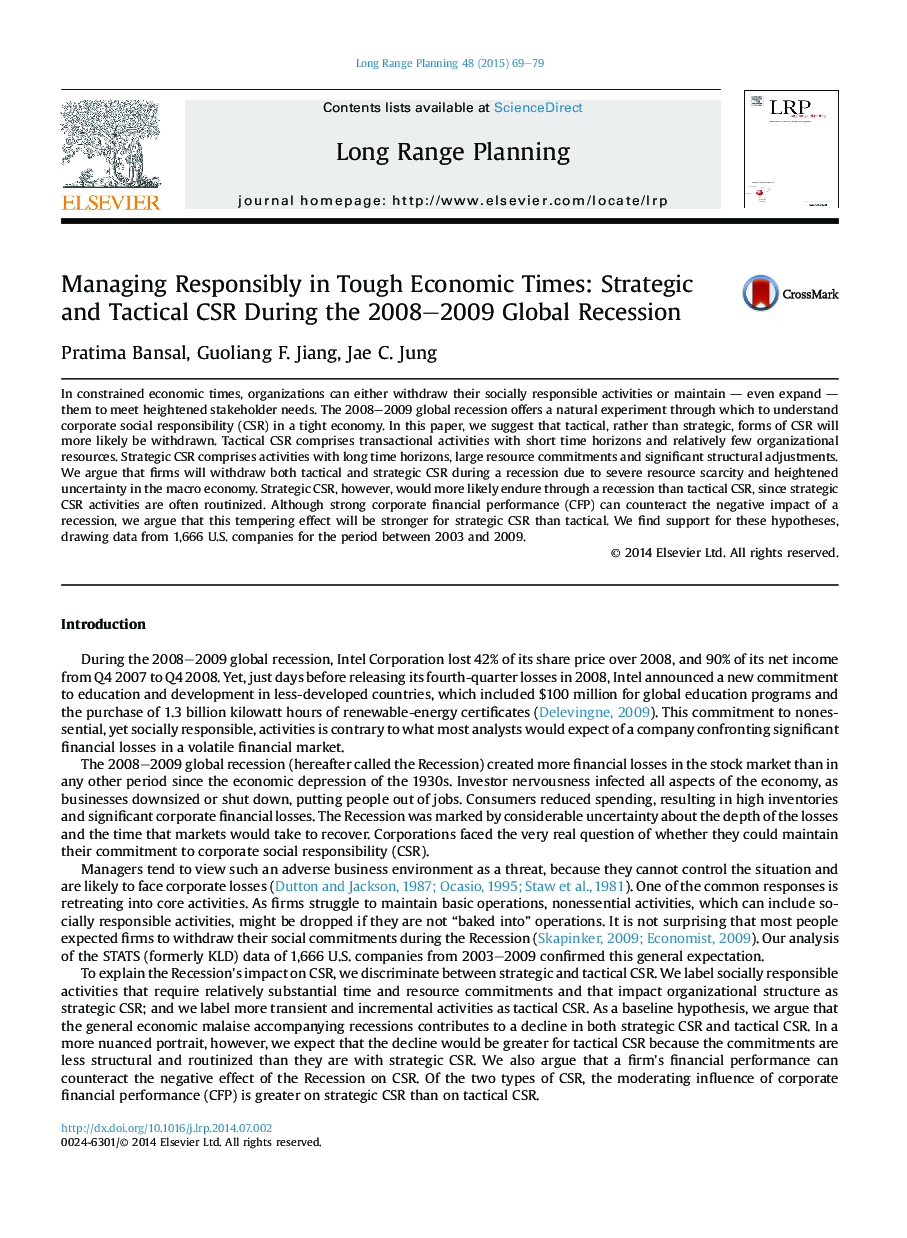| Article ID | Journal | Published Year | Pages | File Type |
|---|---|---|---|---|
| 1021312 | Long Range Planning | 2015 | 11 Pages |
In constrained economic times, organizations can either withdraw their socially responsible activities or maintain — even expand — them to meet heightened stakeholder needs. The 2008–2009 global recession offers a natural experiment through which to understand corporate social responsibility (CSR) in a tight economy. In this paper, we suggest that tactical, rather than strategic, forms of CSR will more likely be withdrawn. Tactical CSR comprises transactional activities with short time horizons and relatively few organizational resources. Strategic CSR comprises activities with long time horizons, large resource commitments and significant structural adjustments. We argue that firms will withdraw both tactical and strategic CSR during a recession due to severe resource scarcity and heightened uncertainty in the macro economy. Strategic CSR, however, would more likely endure through a recession than tactical CSR, since strategic CSR activities are often routinized. Although strong corporate financial performance (CFP) can counteract the negative impact of a recession, we argue that this tempering effect will be stronger for strategic CSR than tactical. We find support for these hypotheses, drawing data from 1,666 U.S. companies for the period between 2003 and 2009.
